Causerie (from French, "talk, chat") is a literary style of short informal essays mostly unknown in the English-speaking world. [1] A causerie is generally short, light and humorous and is often published as a newspaper column (although it is not defined by its format). Often the causerie is a current-opinion piece, and it may contain more verbal acrobatics and humor than a regular opinion or column. In English, causerie is commonly known as "personal story", "talk of the town", [2] "funny story" or "column" instead.
The causerie style is characterized by a personal approach to the reader; the writer "babbles" to the reader, from which the term derives. Language jokes, hyperbole, intentional disregard of linguistic and stylistic norms, and other absurd or humorous elements are permitted. For example, in a causerie about a politician, they may be placed in an imagined situation. Sentences are usually kept short, avoiding over-explaining, and room is left for the reader to read between the lines.
The content of causerie is not limited and it may be satire, parody, opinion, factual or straight fiction. Causerie is not defined by content or format, but style. Although usually published in a newspaper, many authors have published anthologies. The causerie as a form became popular in the English-speaking world during the later nineteenth century following the widely published and influential essays of Andrew Lang.[ citation needed ]
Donaldson, William (2004). Oxford Dictionary of National Biography. Oxford University Press.

An essay is, generally, a piece of writing that gives the author's own argument, but the definition is vague, overlapping with those of a letter, a paper, an article, a pamphlet, and a short story. Essays have been sub-classified as formal and informal: formal essays are characterized by "serious purpose, dignity, logical organization, length," whereas the informal essay is characterized by "the personal element, humor, graceful style, rambling structure, unconventionality or novelty of theme," etc.
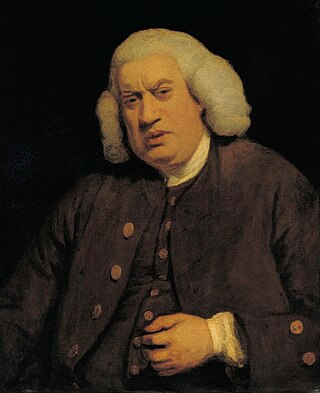
Samuel Johnson, often called Dr Johnson, was an English writer who made lasting contributions as a poet, playwright, essayist, moralist, literary critic, sermonist, biographer, editor, and lexicographer. The Oxford Dictionary of National Biography calls him "arguably the most distinguished man of letters in English history".
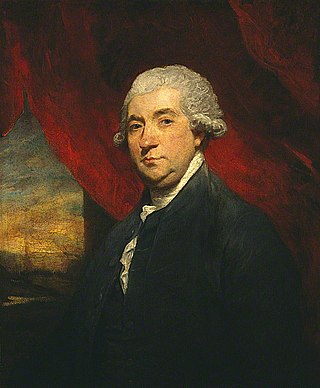
James Boswell, 9th Laird of Auchinleck, was a Scottish biographer, diarist, and lawyer, born in Edinburgh. He is best known for his biography of the English writer Samuel Johnson, Life of Samuel Johnson, which is commonly said to be the greatest biography written in the English language. A great mass of Boswell's diaries, letters, and private papers were recovered from the 1920s to the 1950s, and their publication by Yale University has transformed his reputation.

A humorist is an intellectual who uses humor, or wit, in writing or public speaking. A raconteur is one who tells anecdotes in a skillful and amusing way.

Test of English as a Foreign Language is a standardized test to measure the English language ability of non-native speakers wishing to enroll in English-speaking universities. The test is accepted by more than 11,000 universities and other institutions in over 190 countries and territories. TOEFL is one of several major English-language tests worldwide, including IELTS, Pearson Test of English (PTE), Duolingo English Test, Cambridge Assessment English, and Trinity College London exams.

Lives of the Most Eminent English Poets (1779–81), alternatively known by the shorter title Lives of the Poets, is a work by Samuel Johnson comprising short biographies and critical appraisals of 52 poets, most of whom lived during the eighteenth century. These were arranged, approximately, by date of death.

The Chap is a British humorous men's lifestyle magazine published quarterly. It was founded in 1999 by Gustav Temple and Vic Darkwood, and is still edited by Temple.
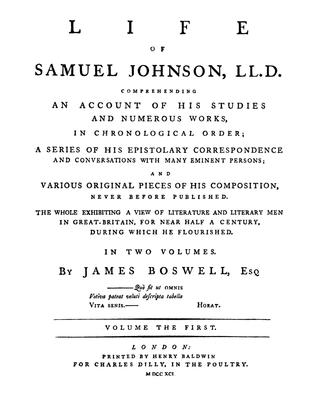
The Life of Samuel Johnson, LL.D. (1791) by James Boswell is a biography of English writer and lawyer Samuel Johnson. The work was from the beginning a critical and popular success, and represents a landmark in the development of the modern genre of biography. Many have called it the greatest biography written in English, one of the greatest biographies ever written, and among the greatest nonfiction books of all time. The book is valued as both an important source of information on Johnson and his times, as well as an important and enduring work of literature.
Hugh Kingsmill Lunn, who dropped his surname for professional purposes, was a versatile British writer and journalist. The writers Arnold Lunn and Brian Lunn were his brothers.

A letter to the editor (LTE) is a letter sent to a publication about an issue of concern to the reader. Usually, such letters are intended for publication. In many publications, letters to the editor may be sent either through conventional mail or electronic mail.

An advice column is a column in a question and answer format. Typically, a reader writes to the media outlet with a problem in the form of a question, and the media outlet provides an answer or response.
Gespräche mit Goethe is a book by Johann Peter Eckermann recording his conversations with Johann Wolfgang von Goethe during the last nine years of the latter's life, while Eckermann served as Goethe's personal secretary. It was first released in 1836 and substantially augmented in 1848.

The Personal Heresy is a series of articles, three each by C. S. Lewis and E. M. W. Tillyard, first published on 27 April 1939 by Oxford University Press and later reprinted, also by Oxford University Press, in 1965. The book has been reprinted in 2008 by Concordia University Press with an Introduction by Lewis scholar Bruce L. Edwards and a new Preface by the editor, Joel D. Heck. The central issue of the essays is whether a piece of imaginative writing, particularly poetry, is primarily a reflection of the author's personality or is about something external to the author. The two positions may be summarized briefly as the subjective position (Tillyard) and the objective position (Lewis). In general, Lewis attempts to keep poetry within the reach of the common person, while Tillyard thinks of the poet as a person who is "a cut above the common person."

Subtitles are texts representing the contents of the audio in a film, television show, opera or other audiovisual media. Subtitles might provide a transcription or translation of spoken dialogue. Although naming conventions can vary, captions are subtitles that include written descriptions of other elements of the audio, like music or sound effects. Captions are thus especially helpful to people who are deaf or hard-of-hearing. Subtitles may also add information that is not present in the audio. Localizing subtitles provide cultural context to viewers. For example, a subtitle could be used to explain to an audience unfamiliar with sake that it is a type of Japanese wine. Lastly, subtitles are sometimes used for humor, as in Annie Hall, where subtitles show the characters' inner thoughts, which contradict what they were saying in the audio.
A column is a recurring piece or article in a newspaper, magazine or other publication, where a writer expresses their own opinion in few columns allotted to them by the newspaper organization. People who write columns are described as columnists.
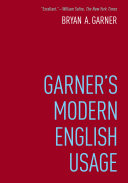
Garner's Modern English Usage (GMEU), written by Bryan A. Garner and published by Oxford University Press, is a usage dictionary and style guide for contemporary Modern English. It was first published in 1998 as A Dictionary of Modern American Usage, with a focus on American English, which it retained for the next two editions as Garner's Modern American Usage (GMAU). It was expanded to cover English more broadly in the 2016 fourth edition, under the present title. The work covers issues of usage, pronunciation, and style, from distinctions among commonly confused words and phrases to notes on how to prevent verbosity and obscurity. In addition, it contains essays about the English language. An abridged version of the first edition was also published as The Oxford Dictionary of American Usage and Style in 2000 and a similar version was published in The Chicago Manual of Style 16th edition in 2017. The latter includes three sections titled "Grammar", "Syntax" and "Word Usage", each with several subcategories.

Vice Versa (1947–1948), subtitled "America's Gayest Magazine", is the earliest known U.S. periodical published especially for lesbians. Its mission was to express lesbian emotion within the bounds of good taste.
The Natural History of Iceland is a natural history of Iceland by Danish lawyer Niels Horrebow. It was published in Danish in 1752, with an English translation in 1758.
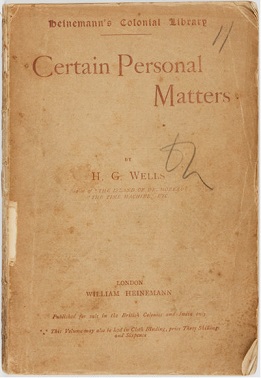
Certain Personal Matters is an 1897 collection of essays selected by H. G. Wells from among the many short essays and ephemeral pieces he had written since 1893. The book consists of thirty-nine pieces ranging from about eight hundred to two thousand words in length. A one-shilling reprint was issued in 1901 by T. Fisher Unwin.
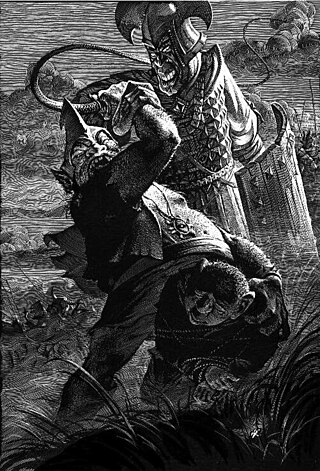
The author J. R. R. Tolkien uses many proverbs in The Lord of the Rings to create a feeling that the world of Middle-earth is both familiar and solid, and to give a sense of the different cultures of the Hobbits, Men, Elves, and Dwarves who populate it. Scholars have also commented that the proverbs are sometimes used directly to portray characters such as Barliman Butterbur, who never has time to collect his thoughts. Often these proverbs serve to make Tolkien's created world seem at once real and solid, while also remaining somewhat unfamiliar. Further, the proverbs help to convey Tolkien's underlying message about providence; while he keeps his Christianity hidden, readers can see that what appears as luck to the protagonists reflects a higher purpose throughout Tolkien's narrative.